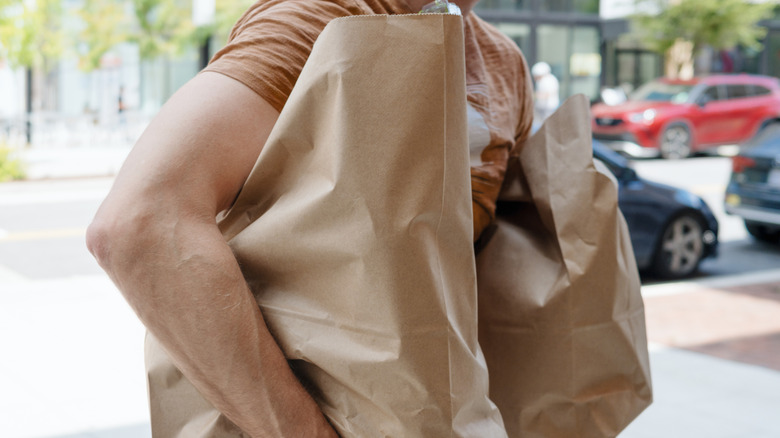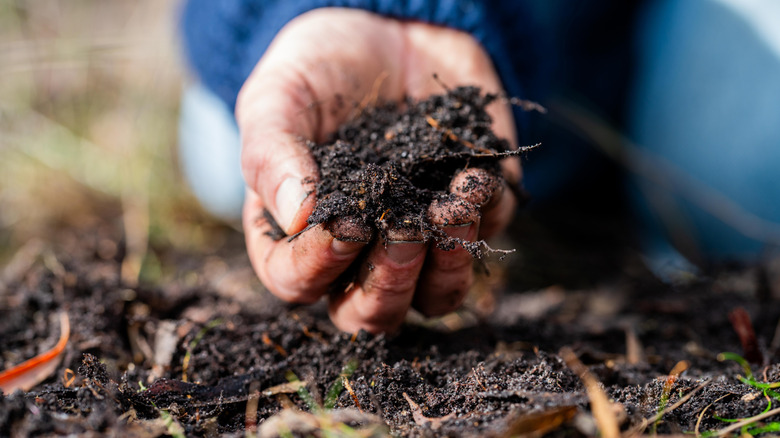If You've Got Empty Paper Bags, Don't Toss Them — They're Garden Gold In Disguise
Brown paper bags can be useful items around the home, but if you shop a lot, your cabinet might be busting at the seams. A typical person in the U.S. uses more than 700 pounds of paper annually, according to the Environmental Protection Agency. Some of that ends up in landfills, when instead it could be recycled or used in other ways. If you're looking for a great way to repurpose your paper bags, look no further than your own backyard. With a little effort, they can make wonderful additions to a compost pile.
Creating an at-home compost pile is beneficial to the planet and your garden. It helps keep organic scraps and clippings from becoming unnecessary waste in landfills, while also producing a nutrient-rich soil mixture in return. Brown paper bags can be part of this win-win composting process as long as they're the right type—and most are. Don't compost your brown paper bags if they contain plastic, metal, or are covered in wax or ink that isn't soy or water-based. The average grocery store shopping bags should be safe to use, but it's important to make sure they haven't been contaminated by food waste either. Animal products are not compostable, so don't use a paper bag if it's stained with grease or other meat or dairy products. Used properly, paper bags can help your garden thrive by amending the soil.
Compost your paper bags with a few easy steps
Paper bags are just one of many ingredients that can contribute to a successful compost pile, which in turn can make a gardener's life easier. Start by shredding up the bags creating a little heap. Having the paper in smaller form will help it blend with your other compost materials better, and it'll break down quicker, too. Mix it into your compost pile, but be mindful of the content's ratio. Paper bags, twigs and dried up leaves are a carbon source referred to as brown material. On the other hand, grass clippings and produce scraps are a source of nitrogen, known as green material in composting. The amount of brown materials should be about two to three times more than the green materials. Adding paper will help give energy to the compost's microorganisms.
Your paper bags should decompose in the span of several weeks to a couple of months if you have them in shreds. Compost can boost your soil's health, help it retain nutrients, and attract beneficial organisms. It's a great addition to your garden beds, containers, and anywhere you want to see happy plants. Take the time to learn all about composting to ensure you only add materials that belong in your pile. Now you know that paper bags can be one of them.

